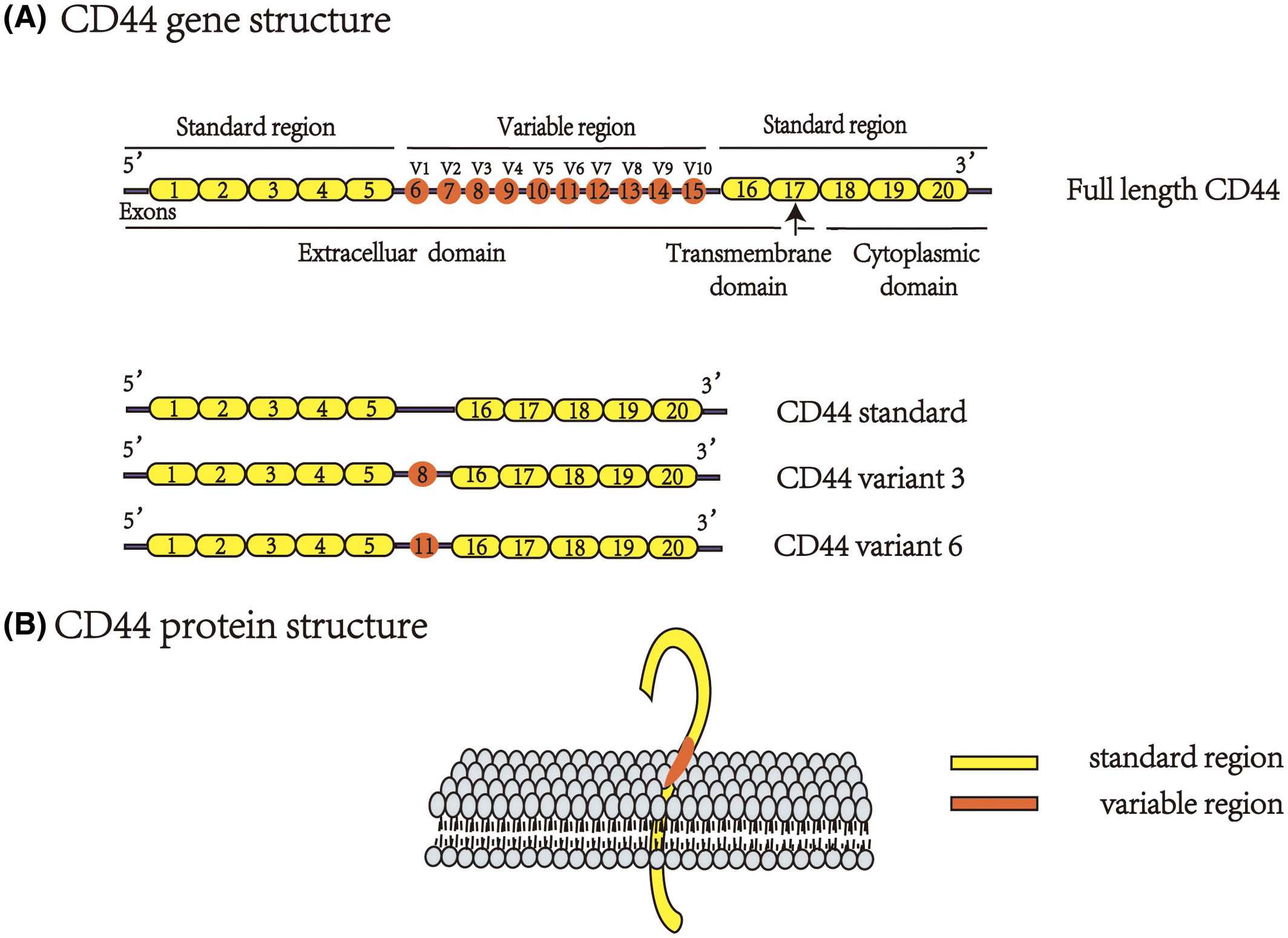CD44-Expressed Exosome Modification Service
CD44-expressed exosome modification involves the expression of CD44 on the surface of exosomes through genetic engineering or chemical modification techniques to enhance their targeting capability and functional activity. CD44 is a transmembrane glycoprotein widely distributed among various cell types, with high expression in stem cells, immune cells, and cancer cells. It plays a crucial role in cell adhesion, signal transduction, tumor progression, and inflammation regulation. CD44 interacts with hyaluronic acid (HA) and other extracellular matrix components to mediate cell-cell and cell-microenvironment interactions. By modifying exosomes with CD44, their targeting capability can be improved, allowing for more efficient delivery of drugs or biomolecules to specific tissues or cells.
CD44-expressed exosome modification service is widely applied in cancer-targeted therapy, immune regulation, tissue repair, and anti-inflammatory research. In cancer treatment, CD44-modified exosomes can specifically target cancer cells with high CD44 expression, enhancing the delivery efficiency of anticancer drugs or RNA interference molecules while reducing off-target toxicity. In immune modulation, CD44-expressed exosomes interact with immune cells to regulate inflammatory responses, providing potential therapeutic strategies for autoimmune diseases and chronic inflammation. Additionally, this service can be used in tissue engineering and regenerative medicine to facilitate tissue repair and accelerate wound healing, offering novel tools and strategies for precision medicine.

Chen, L. et al. The FASEB Journal, 2020.
Figure 1. Schematic of CD44 Gene and Protein Structure.
Services at MtoZ Biolabs
Based on advanced analysis and detection platforms, the CD44-expressed exosome modification service provided by MtoZ Biolabs can express CD44 on the surface of exosomes through genetic engineering or chemical modification technology to enhance the targeting and functional activity of exosomes. The service includes exosome extraction and purification, CD44 modification, particle size and morphology detection, protein expression verification and functional analysis, and ultimately provides high-quality CD44-modified exosomes and detailed experimental reports. This service can be widely used in tumor targeted therapy, immune regulation, anti-inflammatory therapy and tissue regeneration, and can help the development of precision medicine and innovative biological treatment solutions.
Service Advantages
1. High Stability and Controllable Modification
Genetic engineering or chemical modification technology is used to ensure the stable expression of CD44 on the surface of exosomes, and combined with flow cytometry (FACS), Western blot and other technologies for characterization to ensure the repeatability and functional stability of the modification effect.
2. One-Time-Charge
Our pricing is transparent, no hidden fees or additional costs.
3. Wide Application Potential
Applicable to research fields such as cancer targeted therapy, inflammatory diseases, immune regulation and tissue repair, and can be combined with other functional molecules to further optimize the delivery effect of exosomes and promote the development of precision medicine.
4. Customized Service
MtoZ Biolabs can adjust the expression level of CD44, the source of exosomes (such as mesenchymal stem cells or tumor cells), and combine with other modifications (such as drug loading, fluorescent labeling, etc.) according to customer needs to provide efficient and accurate personalized solutions.
Applications
1. Targeted Tumor Therapy
CD44 is an important marker for a variety of tumor cells and plays a key role in the cancer microenvironment. The CD44-expressed exosome modification service can be used for targeted delivery of anti-tumor drugs, siRNA or gene editing tools to improve the therapeutic effect while reducing side effects on normal tissues.
2. Cancer Stem Cell Research
CD44 plays an important role in the maintenance of cancer stem cells (CSC) and tumor recurrence. This service can be used to study the characteristics of CSC, the regulation mechanism of signaling pathways, and develop precision treatment strategies for cancer stem cells.
3. Tissue Repair and Cell Regeneration
CD44 plays an important role in cell adhesion, migration and extracellular matrix interaction. CD44-expressed exosome modification service can be used in tissue engineering fields such as trauma repair, bone and joint diseases, cardiovascular damage, etc. to promote cell regeneration and tissue repair.
4. Stem Cell Therapy Enhancement
CD44 is widely expressed in mesenchymal stem cells (MSC) and other regenerative medicine-related cells. CD44-modified exosomes can improve the homing ability of MSC, optimize the effect of stem cell therapy, and show potential application value in neurodegenerative diseases, diabetic wound healing, etc.
FAQ
Q1: Why Is it Necessary to Modify CD44 on Exosomes?
A1: CD44 is a transmembrane glycoprotein that plays a crucial role in cell adhesion, tumor progression, immune regulation, and tissue repair. Modifying CD44 on exosomes can enhance their targeting ability and increase their applicability in tumor therapy, stem cell therapy, and immune modulation. For example, CD44-modified exosomes can be used to target cancer stem cells (CSCs), improving cancer treatment efficacy while minimizing adverse effects on normal cells.
Q2: How Are CD44-Modified Exosomes Prepared?
A2: CD44-modified exosomes can be obtained through two main approaches: genetic engineering and chemical modification.
Genetic engineering: CD44 is overexpressed in exosome-producing cells to ensure its stable expression on the exosomal membrane.
Chemical modification: CD44 is conjugated to isolated exosomes using coupling or surface modification techniques.
How to order?







